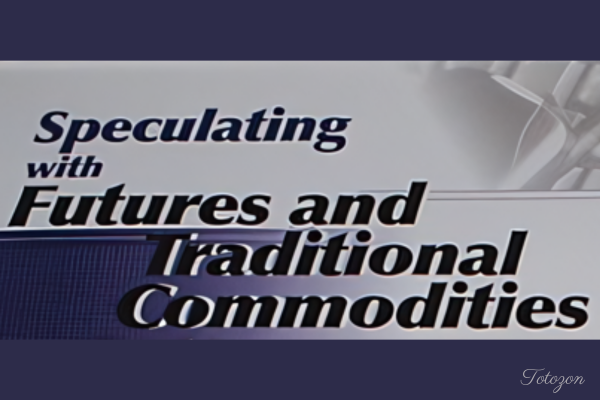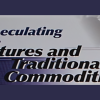-
×
 Quantamentals - The Next Great Forefront Of Trading and Investing with Trading Markets
1 × $8.00
Quantamentals - The Next Great Forefront Of Trading and Investing with Trading Markets
1 × $8.00 -
×
 WondaFX Signature Strategy with WondaFX
1 × $5.00
WondaFX Signature Strategy with WondaFX
1 × $5.00 -
×
 TradeCraft: Your Path to Peak Performance Trading By Adam Grimes
1 × $15.00
TradeCraft: Your Path to Peak Performance Trading By Adam Grimes
1 × $15.00 -
×
 Bond Market Course with The Macro Compass
1 × $15.00
Bond Market Course with The Macro Compass
1 × $15.00 -
×
 Ultimate Trading Course with Dodgy's Dungeon
1 × $8.00
Ultimate Trading Course with Dodgy's Dungeon
1 × $8.00 -
×
 The Indices Orderflow Masterclass with The Forex Scalpers
1 × $23.00
The Indices Orderflow Masterclass with The Forex Scalpers
1 × $23.00 -
×
 Crypto Trading Academy with Cheeky Investor - Aussie Day Trader
1 × $13.00
Crypto Trading Academy with Cheeky Investor - Aussie Day Trader
1 × $13.00
Speculating with Futures and Traditional Commodities with Liverpool Group
$6.00
File Size: Coming soon!
Delivery Time: 1–12 hours
Media Type: Online Course
Content Proof: Watch Here!
You may check content proof of “Speculating with Futures and Traditional Commodities with Liverpool Group” below:

Speculating with Futures and Traditional Commodities with Liverpool Group
Investing in futures and traditional commodities can be a thrilling yet complex endeavor. The Liverpool Group offers insights and strategies to help investors navigate this dynamic market. In this article, we will explore the intricacies of speculating with futures and traditional commodities, providing a comprehensive guide to enhance your investment journey.
Introduction to Futures and Commodities
What Are Futures?
Futures are financial contracts obligating the buyer to purchase, or the seller to sell, an asset at a predetermined future date and price. They are commonly used in hedging and speculation.
Understanding Traditional Commodities
Traditional commodities include physical goods such as gold, oil, grains, and livestock. These assets are traded on various exchanges worldwide.
Why Invest in Futures and Commodities?
Diversification Benefits
Investing in futures and commodities can diversify a portfolio, reducing overall risk. They often have low correlations with traditional stock and bond markets.
Potential for High Returns
While risky, futures and commodities can offer substantial returns. Skilled traders can capitalize on market volatility to achieve significant gains.
The Liverpool Group Approach
Who is Liverpool Group?
The Liverpool Group is a renowned financial advisory firm specializing in futures and commodities trading. Their expertise helps investors navigate these markets effectively.
Liverpool Group’s Strategy
Their strategy combines thorough market analysis with disciplined risk management. By leveraging both technical and fundamental analysis, they aim to maximize returns while minimizing risks.
Key Concepts in Futures Trading
Leverage in Futures Trading
Futures contracts often require a small initial margin, allowing traders to leverage their positions. While leverage can amplify gains, it also increases potential losses.
Margin Calls and Maintenance Margins
Traders must maintain a certain level of equity in their accounts to keep their positions open. Failure to meet margin requirements can result in margin calls and forced liquidation.
Traditional Commodities: A Closer Look
Types of Traditional Commodities
- Metals: Gold, silver, platinum
- Energy: Crude oil, natural gas
- Agricultural: Wheat, corn, soybeans
- Livestock: Cattle, hogs
Factors Influencing Commodity Prices
Commodity prices are influenced by supply and demand dynamics, geopolitical events, weather conditions, and economic indicators.
Trading Futures with Liverpool Group
Market Analysis
Liverpool Group uses a combination of technical indicators and fundamental analysis to predict market movements. This includes analyzing price patterns, economic reports, and geopolitical developments.
Risk Management Techniques
- Stop-Loss Orders: Setting predetermined exit points to limit potential losses.
- Position Sizing: Allocating appropriate capital to each trade to manage risk.
- Diversification: Spreading investments across various commodities to reduce risk.
Common Futures Trading Strategies
Hedging
Hedging involves taking an opposite position in the futures market to offset potential losses in the underlying asset. This strategy is commonly used by producers and consumers of commodities.
Speculative Trading
Speculators aim to profit from price movements in the futures market. They take long or short positions based on their market predictions.
Challenges in Futures and Commodities Trading
Market Volatility
Futures and commodities markets can be highly volatile, leading to significant price fluctuations. Traders must be prepared for rapid changes in market conditions.
Complexity
Understanding the intricacies of futures contracts and commodity markets requires extensive knowledge and experience. New investors may find it challenging to navigate these markets.
Success Stories with Liverpool Group
Case Study: Gold Trading
Liverpool Group successfully guided an investor through a turbulent period in the gold market, leveraging technical analysis and strategic risk management to achieve impressive returns.
Case Study: Agricultural Commodities
By diversifying investments across various agricultural commodities, Liverpool Group helped an investor mitigate risks associated with adverse weather conditions, resulting in steady portfolio growth.
Conclusion
Speculating with futures and traditional commodities offers both opportunities and challenges. The Liverpool Group provides valuable expertise, helping investors navigate these markets with confidence. By combining thorough market analysis with disciplined risk management, investors can enhance their chances of achieving superior returns.
FAQs
1. What is the main advantage of investing in futures?
The primary advantage is leverage, which allows investors to control large positions with a relatively small capital investment.
2. How does Liverpool Group manage risk?
They use techniques like stop-loss orders, position sizing, and diversification to manage risk effectively.
3. What are some common traditional commodities?
Common traditional commodities include metals (gold, silver), energy (crude oil, natural gas), agricultural products (wheat, corn), and livestock (cattle, hogs).
4. What factors influence commodity prices?
Prices are influenced by supply and demand dynamics, geopolitical events, weather conditions, and economic indicators.
5. Can beginners invest in futures and commodities?
Yes, but it is recommended to seek guidance from experienced professionals like Liverpool Group to navigate the complexities of these markets.
Be the first to review “Speculating with Futures and Traditional Commodities with Liverpool Group” Cancel reply
You must be logged in to post a review.
Related products
Forex Trading
Forex Trading
Forex Trading
Forex Trading
Forex Trading
Forex Trading
Forex Trading
Forex Trading
The Complete Guide to Multiple Time Frame Analysis & Reading Price Action with Aiman Almansoori



















Reviews
There are no reviews yet.